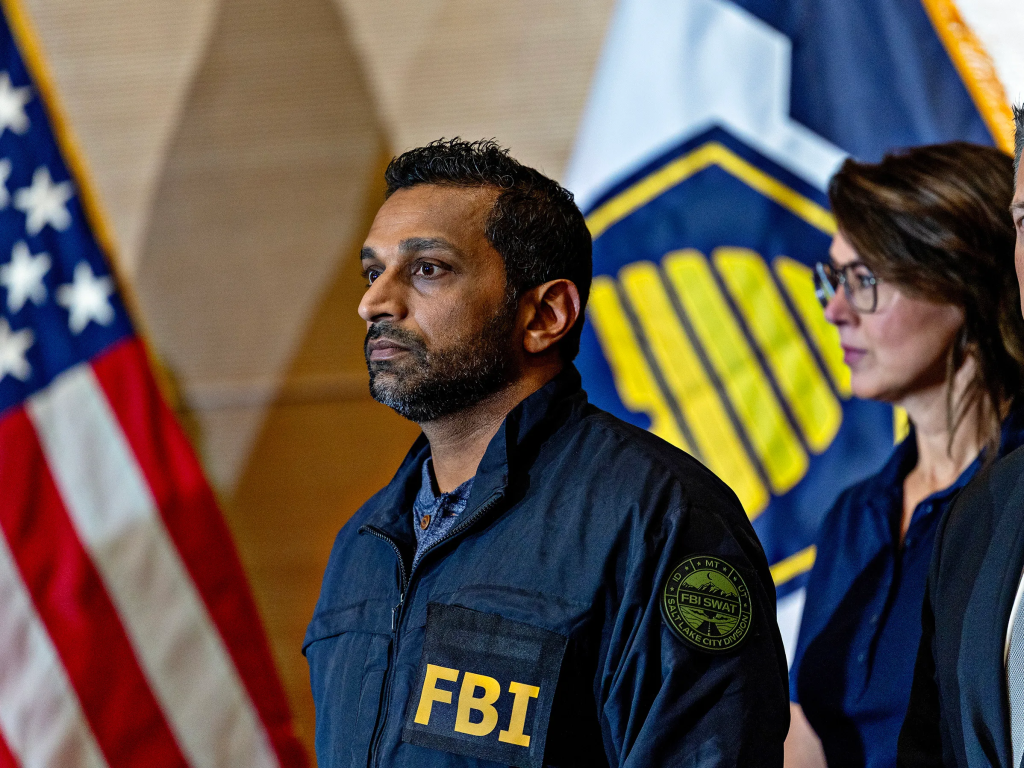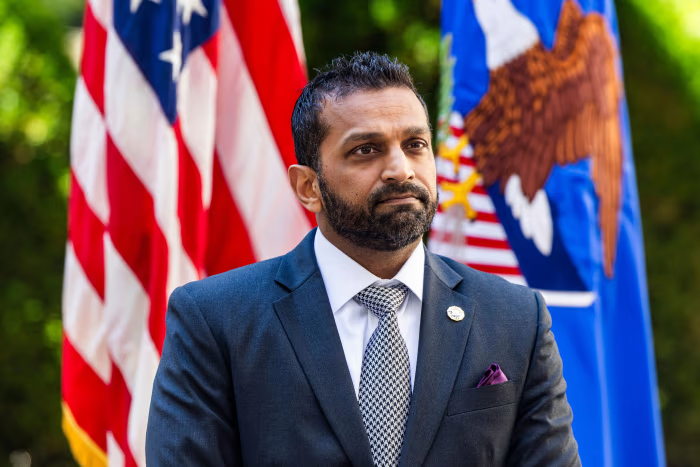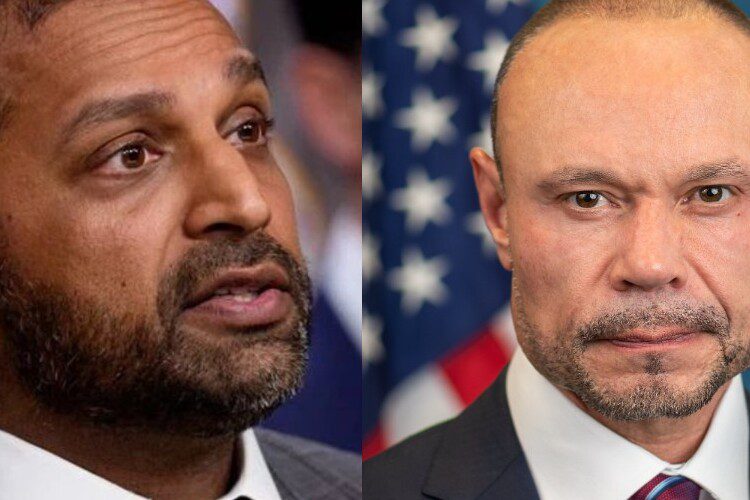Inside the Dark Online World of the 764 Network as Director Patel Vows to Eradicate the Growing Threat to America’s Kids
In the quiet suburbs of a Midwestern town, where the hum of school buses fades into evening homework sessions, 14-year-old Emily Thompson stared at her laptop screen one autumn night in 2025, her fingers hovering over the keyboard as a seemingly friendly gamer from Discord chatted about her latest Minecraft build. “Hey, show me something cool—your turn to impress,” the message read, innocent on the surface but laced with the subtle pull of someone who knew how to draw a lonely teen into the shadows. Emily, grappling with the isolation of a recent family move and the sting of middle school cliques, typed back, unaware that the user—part of a sprawling online network called 764—was methodically grooming her for something far darker. It was a routine that played out thousands of times over, but for Emily, it ended differently: A vigilant parent spotted the exchange, alerted authorities, and triggered an FBI rescue that pulled her from the edge. Her story, one of countless threads in a web of digital danger, underscores the grim reality FBI Director Kash Patel laid bare on November 26, 2025: Nearly 6,000 child victims identified and a staggering 500% surge in arrests targeting exploitation rings like 764, a nihilistic group that preys on vulnerable youth through gaming platforms and social media. As Patel vows to dismantle these shadows, the human cost—a generation’s innocence hanging by a thread—calls for a nation to confront the monsters lurking behind screens.

Kash Patel, the no-nonsense former prosecutor turned FBI chief under President Trump’s second term, has made child protection his North Star since his February 2025 confirmation, framing it as “modern-day terrorism” that demands the bureau’s full arsenal. In a briefing that day, Patel revealed the scope: Over 300 active investigations into 764 alone, part of a broader crackdown that identified nearly 6,000 victims and notched a 500% arrest increase from fiscal year 2024, per internal FBI metrics shared with Congress. “This FBI is fully engaged in dismantling NVE networks and violent groups like 764—who prey on young children using online platforms like gaming systems or social media,” Patel said, his voice steady as he detailed the bureau’s pivot from traditional threats to this insidious digital frontier. Nihilistic Violent Extremism (NVE), the label the FBI coined for these actors, captures a breed unbound by ideology—driven not by politics or religion, but by a deep-seated hatred of society that manifests in grooming, extortion, and coercion. For Patel, a father who credits his own kids with sharpening his resolve, it’s personal: “As we speak, we have over 300 cases nationwide related to 764 alone, with more to come, and have surged NVE-related arrests almost 5-fold from the year prior.” The numbers, drawn from 55 field offices, reflect a coordinated assault—Operation Restore Justice in May 2025 alone rescued 115 children and arrested 205 predators nationwide, a five-day blitz that saw agents posing as minors in chats and raiding servers in basements from Baltimore to Bakersfield.

At the heart of this surge lies 764, a decentralized hydra of online predators that slithers through Discord, Telegram, and gaming apps like Minecraft and Roblox, targeting kids as young as 9 with a cocktail of flattery, dares, and dread. Founded in 2021 by Texas teen Bradley Cadenhead—sentenced to 80 years in 2023 for running the precursor CVLT—the network has splintered into global offshoots, its members trading “challenges” that escalate from dares to self-harm, animal cruelty, and sexual abuse, all captured in encrypted “vaults” for clout among the group. The FBI’s April 30, 2025, takedown of leaders Leonidas Varagiannis (“War”), 21, from Greece, and Prasan Nepal (“Trippy”), 20, from North Carolina, exposed the rot: Charged with operating an international enterprise, they allegedly exploited at least eight minors across jurisdictions, some as young as 13, producing child sexual abuse material (CSAM) shared in private chats. “764 is a network of nihilistic violent extremists who engage in criminal conduct… seeking to destroy civilized society through the corruption of vulnerable populations,” U.S. Attorney Edward R. Martin Jr. said at the time, his words a stark indictment of a group whose accelerationist goals include sowing chaos via sextortion and gore. Europol’s 2025 report on organized crime labeled 764 a “violent, extremist child abuse ring,” its tendrils reaching from U.S. basements to Finnish arrests in November. For victims like Emily, the grooming starts innocently—a shared screenshot in a game chat, a “you’re cool” DM that blooms into demands for photos, then threats if refused. “They make you feel seen, then trap you,” Emily shared anonymously in a support group, her voice a whisper of the isolation that nearly broke her.

Patel’s crackdown, building on Project Safe Childhood’s 2006 foundation, deploys the FBI’s full toolkit—undercover agents in teen avatars, AI-flagged keywords on platforms, and international task forces with Interpol—to hunt these networks. Operation Restore Justice, launched in April 2025 for Child Abuse Prevention Month, exemplified the momentum: Over five days, 55 field offices arrested 205 offenders and rescued 115 children, from a Minneapolis reservist producing CSAM in uniform to a D.C. ex-officer trafficking minors. “Every child deserves to grow up free from fear,” Patel said, his directive to “not negotiate” with prosecutors a vow that yielded life sentences for 764 leaders like Varagiannis and Nepal, facing up to life if convicted. The National Center for Missing & Exploited Children’s CyberTipline, flooded with 1,300 764 reports in 2024—a 200% jump—feeds the bureau’s war room, where analysts map chat logs like battlefield intel. Yet the fight’s human core lies in the rescues: A 13-year-old in Baltimore, coerced into self-harm videos, pulled from the brink by an FBI “friend” who revealed her badge; a 11-year-old in Arizona, extorted for nudes, whose parent’s tip led to a dawn raid saving her from suicide’s edge.
For survivors like Emily, now 15 and in therapy, the scars run deep—nights replaying chats, trust shattered in online worlds once safe. “They knew my fears, used them like weapons. FBI got me out, but the nightmares stay,” she confided to her counselor, her words a quiet indictment of platforms like Discord, which Senator Mark Warner grilled in August 2024 for “failure to safeguard minors.” Parents, too, bear the burden: A Virginia mom who monitored her daughter’s Roblox account found grooming messages, her 911 call sparking a 764 bust that rescued three girls. “I thought games were fun—now I check every notification,” she said, her vigilance a badge of love amid the fear. Patel’s focus, echoed in September’s Senate testimony where he revealed 1,700 domestic terrorism probes (many NVE), prioritizes these fronts over ideological silos, a shift from 2024’s 300 cases to 2025’s surge. The 764 network’s anatomy, dissected in FBI affidavits and Europol briefs, reveals a hydra of horror: Decentralized cells on Telegram and Kik, where “challenges” escalate from dares to CSAM production, traded in encrypted vaults for status. Founded by Cadenhead in 2021 from a Texas zip code (764), it splintered after his 2023 sentencing, its offshoots like CVLT and No Lives Matter blending nihilism with gore—self-mutilation videos, animal abuse clips, all to “level up” in the group’s twisted hierarchy. The April 2025 charges against Varagiannis and Nepal exposed eight victims, some 13, coerced across jurisdictions; their guide for content creation, seized in raids, detailed extortion tactics that left kids isolated and terrified. “It’s not ideology—it’s anarchy, a hatred of everything good,” Patel said, his May 2025 Senate remarks labeling 764 “deeply disturbing,” a threat demanding cross-platform vigilance. Europol’s 2025 report ties it to global rings, with Finnish arrests in November underscoring the borderless peril.

Patel’s blueprint, blending tech and tenacity, deploys AI to flag keywords like “challenge” in chats, undercover ops in Roblox lobbies, and tips from the CyberTipline’s 36 million 2024 reports—a 20% jump from 2023. Project Safe Childhood, revived under his watch, coordinates 55 field offices with CEOS, yielding 205 arrests in Restore Justice’s May blitz. “No predator is out of reach,” Patel vowed, his words a lifeline for parents like Emily’s mom, who now advocates for school assemblies on digital safety. Yet challenges persist: Platforms’ encryption shields servers, and splinter groups like MKU evade takedowns, their reach global with 250 U.S. probes spanning all states.
As Patel’s FBI presses on—300 764 cases active, arrests up fivefold—the fight’s heart beats in rescues like Emily’s, now thriving in art class, her brushstrokes a reclaiming of joy. For her, and 6,000 others pulled from darkness, it’s proof that vigilance saves—not just lives, but innocence. In a world of screens and shadows, their stories call us to watch closer, listen deeper, and remember: Every child deserves a tomorrow unscarred by yesterday’s monsters.



